Dr. Huberman of the Huberman Lab has discussed how a well known and safe sports supplement can actually help with brain function.
Creatine Brain Health
Creatine is a supplement best-known for its ability to promote lean muscle gain, however it is now being recognized that creatine can also be a huge benefit to brain health.
How does creatine benefit the brain? Creatine is brain fuel!
You see, the brain needs a lot of energy. The brain is only about 2% of body mass but it uses about 20% of the body’s energy! And this is just at rest!
With a cognitively demanding event, the brain’s energy needs are even higher!
Creatine is used as fuel by the brain in two ways: as both an ‘energy buffer’ and an ‘energy shuttle’.
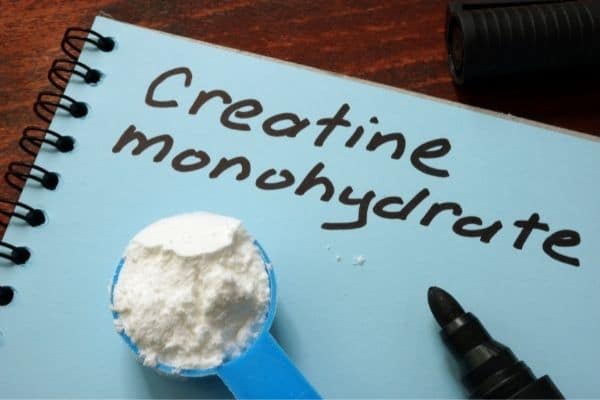
Creatine Brain Benefits
Creatine is an organic acid made from 3 amino acids, arginine, glycine, and methionine.
There are 2 ways that the brain can use creatine when it needs an extra energy boost.
- Creatine can be used as a fuel reserve or ‘energy buffer’: Creatine is converted by an enzyme into phosphocreatine (PCr), which is a more stable form of energy storage than adenosine triphosphate (ATP).
- Creatine also acts as an ‘energy shuttle’, it can move into cells more easily than ATP. So creatine can transport energy to where it is needed more quickly.
So creatine gives the brain an extra energy reserve, and it is the type energy that can be used quickly.
Basically Creatine is like rocket fuel for your brain!
Creatine literally helps your brain work more quickly, or to ‘think on your feet’.

Dr. Huberman: Creatine Improves Cognitive Function
Dr. Huberman of The Huberman Lab podcast has said many times that creatine (around 5g/day) can improve cognitive performance.
Dr. Huberman is a neuroscientist and tenured professor at the Stanford School of Medicine. Based on Dr. Huberman’s understanding of the the scientific literature he takes certain supplements for brain health, including 5g of creatine monohydrate per day.
He mixes his creatine in with a drink, often an electrolyte drink which also benefits brain health.

The best time to take creatine? Dr. Huberman says that the timing of creatine supplementation doesn’t matter. Take it when you can.
Creatine and Brain Fog
How does creatine help with brain fog?
Creatine can be used as a fuel by the brain, particularly in the part of the brain involved in concentration and focus (the prefrontal cortex).
This is the part of the brain that does not work well in brain fog, and requires extra fuel for problem solving.
The brain fuel boost with creatine supplementation helps with any condition that has altered brain energy metabolism.
Examples would be anyone working on complex cognitive tasks, so needing an extra energy boost for the brain in the short term.
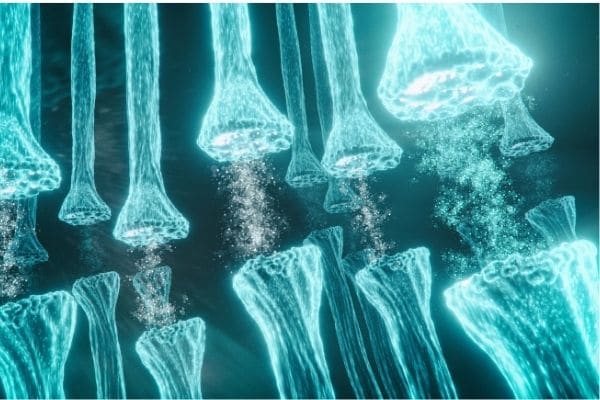
But also people suffering from brain fog due to hypoxia, sleep deprivation, and neurological conditions where normal brain energy metabolism is altered.
Creatine and Brain Damage
A characteristic of traumatic brain injury is an alteration of ATP demand due to reduced blood flow and hypoxia which lead to brain fog.
Brain creatine is actually reduced following a mild traumatic brain injury (mTBI).

Because of this creatine supplementation may help with mild traumatic brain injury (mTBI), which is also associated with changes in brain energy needs.
And in fact, studies have shown that creatine supplementation improved cognition, communication, self-care, personality, and behavior, and reduced headaches, dizziness, and fatigue in children with mTBI.
You can use the code VASTMIND to get 15% off your order at Momentous.
Creatine for Depression
People with brain fog often suffer from depression, which makes sense. Why wouldn’t you be depressed if you were having difficulty with memory and achieving your daily tasks?
However, the two symptoms may actually be more closely linked. Many sources of evidence show that brain energy abnormalities contribute to depression.
This suggests that creatine, which enhances brain energy storage, could help with depression.

Multiple studies (reviewed here) have shown that supplementation with around 5g of creatine per day can improve depression symptoms.
Creatine can also help regulate and improve your mood, by altering NMDA receptors.
Creatine supplementation can also augment SSRI effectiveness. One issue is that some bipolar patients develop mania or hypomania with creatine supplementation, so discuss with your physician if that could be an issue for you.
You can use the code VASTMIND to get 15% off your order at Momentous.
Consult your Physician or Registered Dietitian before starting nutrition supplements.
Creatine for Anxiety and PTSD
Brain creatine levels have been shown to be lower in patients with generalized anxiety disorder and PTSD (again very common in people complaining of brain fog).

Unfortunately only a few small studies have looked at the effects of creatine supplementation on anxiety and PTSD. However these studies did show that creatine supplementation reduced symptoms of PTSD.
Creatine Supplementation for Brain Health in Women
It turns out that creatine supplementation may be even more beneficial for women than for men.
Women may have lower levels of creatine in the brain, particularly the frontal lobe, which controls mood, cognition, memory, and emotion. Based on this, creatine supplementation may be even more effective for women for brain health.

There are also fluctuations in creatine kinase concentrations based on cyclical hormones. This means that creatine supplementation may be helpful in treating depression or cognitive symptoms during post-partum and menopause.
Does Creatine Supplementation Cause Hair Loss?
The short answer is no. Creatine does slightly increases total testosterone, and the conversion of testosterone to dihydra testosterone (DHT).
Because of this, some people are worried that creatine supplementation will cause hair loss. (DHT is one of the main hormones that can promote male pattern baldness.)
Creatine supplementation does not speed up hair loss any more than your natural level, as it does not raise androgens abnormally. However, if there is any issue, the hair follicle is still there so hair growth should return once supplementation is stopped.

Creatine can optimize estrogen and testosterone for people in their 30s and 40s without suppressing natural testosterone production. It may be especially useful for men in their 20s.
Optimizing Creatine Dosing for Brain Fog
For brain health you want to take a dose of creatine that will benefit the brain.
The dose most discussed is 5g per day but it takes 2-4 weeks to notice outcomes from 5g daily.
So some regimens use ‘loading doses’ for the first week to increase brain saturation of creatine.
You load by taking creatine (5g) four times a day for a week and then switch to the maintenance dose of 5g per day.
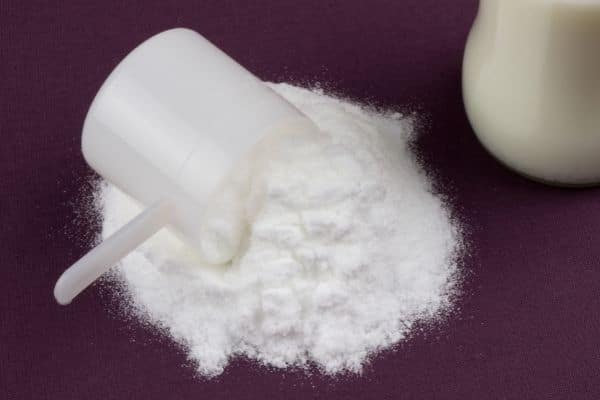
Creatine can be a gut irritant, so for some people this loading strategy is not ideal. In that case you can start with 5g per day and continue with this dose. It will just take longer to reach this ‘brain saturation’ level.
Dr. Huberman Safety Tested Creatine: Momentous
Creatine monohydrate has been studied and used for years to support increasing muscle mass. Creatine is the most tested, safe, and effective sports supplement available.
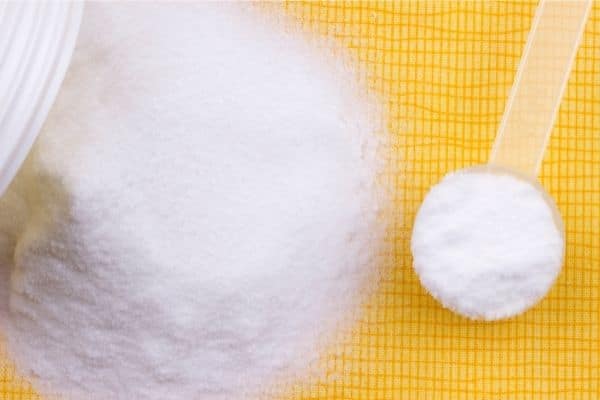
However, you do want your creatine to be made by a reputable company, and Dr Huberman has partnered with Momentous to provide safe supplements including creatine.
You can use the code VASTMIND to get 15% off your order at Momentous.
Momentous and Dr. Huberman are collaborating to develop products and protocols designed to optimize mental health, physical health, and performance in all aspects of life.
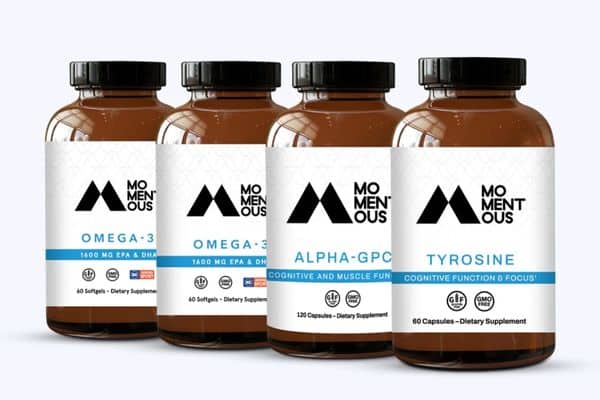
Consult your Physician or Registered Dietitian before starting nutrition supplements.
Creatine Supplementation for Brain Fog Review
Creatine has been studied for years as a sport supplement and the ability to increase lean muscle mass. Creatine is now being studied for its brain function benefits.
Creatine can help brain fog by acting as extra fuel for the brain.
This extra fuel is particularly helpful for cognitively demanding tasks (where the brain needs a lot of energy!) and for people with conditions where brain energy metabolism is altered.
Creatine has been shown to be helpful for:
- traumatic brain injury
- improved cognition
- communication
- self-care
- personality
- behavior
- reduced headaches
- reduced dizziness
- reduced fatigue
- reduced symptoms of PTSD.
- improves mood by altering NMDA receptors
- improves depression symptoms
- augments SSRI effectiveness
- reducing postpartum and menopausal depression and cognitive symptoms
- optimizes estrogen and testosterone in 30 -40 year olds.

References
- Creatine Supplementation and Brain Health
- Creatine Supplementation in Women’s Health: A Lifespan Perspective
- Creatine for the Treatment of Depression
- Effects of Creatine Supplementation on Brain Function and Health
- The Huberman Lab Episode 34: Understanding & Conquering Depression
- The Huberman Lab Episode 42: Nutrients For Brain Health & Performance
- The Huberman Lab Episode 88: Focus Toolkit – Tools To Improve Your Focus & Concentration